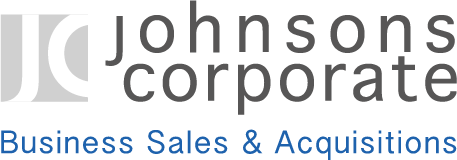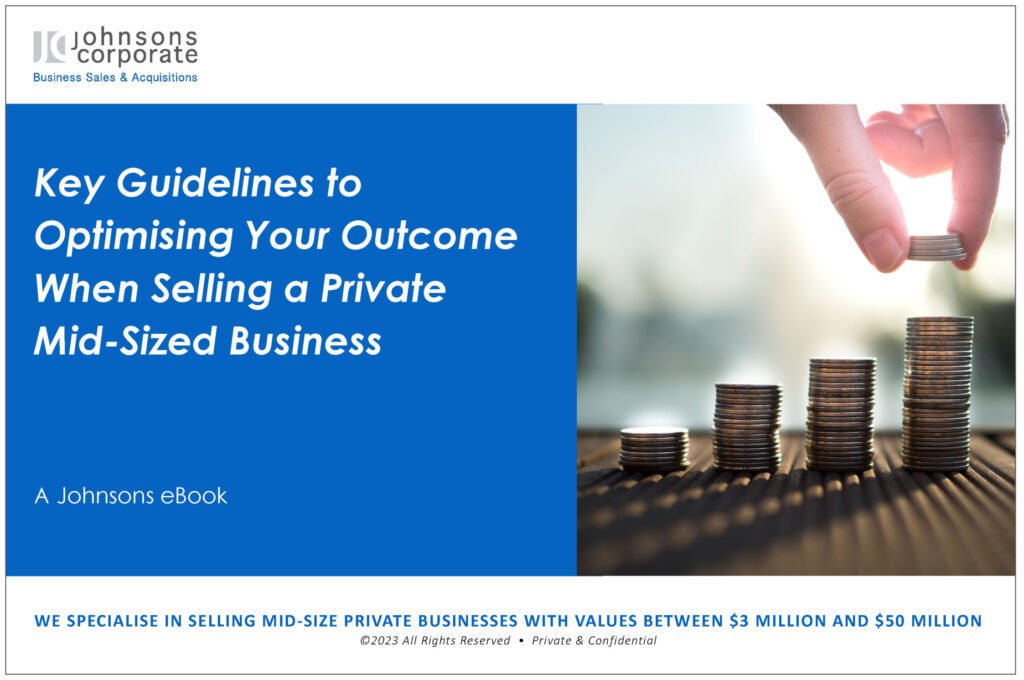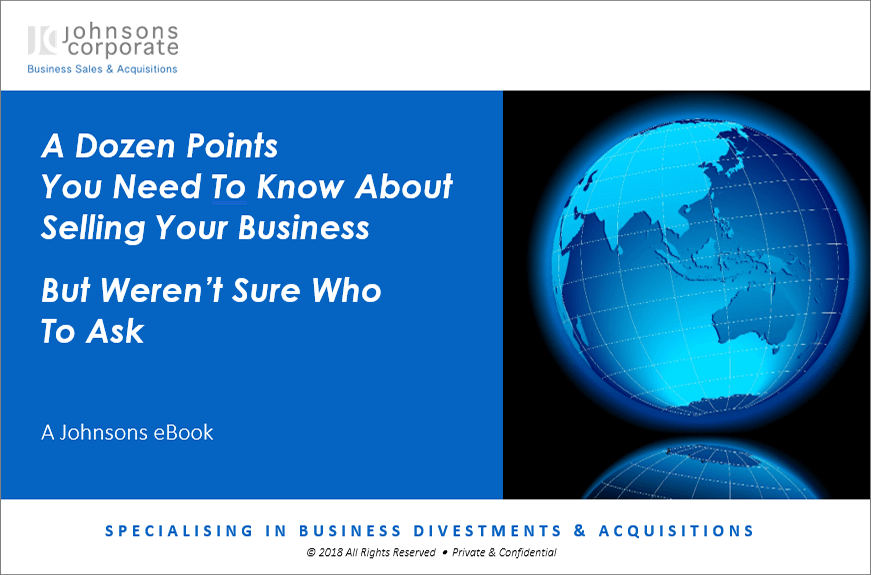How to Sell a Business in the Mid-Market
Finding guidance when you’re considering the sale of a mid-sized business is not that straightforward. The vast majority of online articles and tools are targeted at the small business sector – as is also the case for most brokerage firms. Finding expertise that is relevant to larger private businesses is a challenge.
In that context, we hope that the following information will help you get started. Based on our decades of experience working with the owners of mid-size private businesses from a broad range of industry sectors, we’ve prepared a 10-Step Checklist to selling your business, provided answers to FAQs, and gathered some Other Resources that address mid-market considerations. We’re also here to help if/when you’re ready for a confidential discussion with one of our directors about the specifics of selling your Business.
10-STEP CHECKLIST TO SELLING A BUSINESS
Wondering how to sell your business? Here’s a shortlist of our key recommendations for ensuring you achieve a successful exit. These 10 steps are organised into three sections, covering what to prioritise before, during and after a sales process.
GETTING SALE READY
You’ve decided to sell and want to lay the foundation for a smooth divestment process and successful result.


- Get Clear On Your Objectives – For Yourself and For Your Business.
Whether you’re a sole director, a family business, or a team of unrelated partners – the important thing is to be clear about each shareholder’s objectives including their financial outcomes, intentions to stay in or leave the business, preferred exit timings, and desires for the future of the business. - Talk To Your Technical Advisors
Your accountants & financial advisors can help you anticipate and structure for the tax implications of a sale. They can also start to prepare a clean or ‘normalised’ set of historical financial data, which will be necessary once you go to market. Note: you don’t need to get a formal business valuation. (These are more appropriate for statutory purposes). A good M&A advisor will offer a value appraisal to help you determine your pricing expectations and evaluate if they are ‘reasonable’ in the current market. - Do Some House Cleaning
Maximising the value of your Business prior to sale doesn’t mean investing in the latest systems, equipment and so on. (In fact it’s better to avoid major capital expenditure at this stage). What’s more important is presenting a ‘smooth-running machine’. One of the biggest impacts you can have is minimising any over-reliance on you the owner as well as on key customers &/or suppliers. In addition, organised record-keeping, documented processes & procedures, up-to-date financial records and the careful management of A/R debt & inventory levels will go a long way to building buyer confidence. - Engage An Experienced Mid-Market M&A Professional
Finding the right and best buyer for a mid-sized business is not straightforward. It demands a proactive approach designed to identify & reach strategic acquirers. Having said that, good M&A advisors aren’t necessarily experts in your industry – but they are skilled at creating competitive tension, driving deal terms & price, and managing relationships between multiple stakeholders. They’re also invaluable in helping you anticipate and overcome obstacles, while keeping perspective over the course of a deal.
COMPLETING THE DEAL
Your Business is on the market and you want to optimise the pricing, terms and conditions of sale, all the while completing the transaction in a timely manner.


- Keep Running Your Business Throughout the Sales Process
One of the benefits to engaging a professional advisor to run your divestment process is minimising disruption to your day-to-day operations. You and your management team can instead focus on ‘business as usual’, painting a picture of consistent performance that will reassure your buyer about their investment – especially as the deal draws towards a close. - Help Your Prospective Buyer(s) Mitigate Risk
One of the biggest influences on buyers as regards the pricing & terms they offer is their perception of risk in relation to the acquisition. As the vendor, there are various ways you can help reduce perceived risk and improve your outcome. Probably the most critical of these is offering full-disclosure to the qualified party(s) about your Business’s history and performance. Unfortunately, hiding or glossing over negative news rarely works and invariably destroys trust when things are later uncovered in due diligence or post-sale. - Stay Open-minded and Flexible in Negotiations
Deals are complex and negotiations always involve some amount of give & take on both sides. For you the vendor, it is helpful to stay focused on what your long-term goals are, so you can keep an open mind about how you achieve them. This increased flexibility during negotiations will improve your chances of finding common ground with the buyer – a mix of pricing, terms and structure that you can both agree on – while getting you the overall result you want. - Use a Specialised M&A Lawyer for the Sales Agreement & Settlement
Having found & selected your best buyer and negotiated a mutually acceptable deal, the next biggest hurdle to completion is the legals phase. We strongly recommend our clients engage specialised M&A solicitors. These are experts in balancing the risk-management requirements of complex financial transactions with the commercial realities of operating businesses. They will help keep the deal on track and speed up the settlement process.
FINALISING YOUR EXIT
You’ve completed settlement and handed over the keys, but you’re not quite on the finish line yet.


- Help Build Buyer Confidence during the Merger
Most vendors of mid-sized businesses end up agreeing to some form of hand-over period to provide their acquirer with certainty about business continuity post-sale. This time is a great opportunity to help your staff ease into a new situation. And if you think the negotiated period errs too far on the side of caution, many acquirers are happy to shorten the term after a few months –once they’ve become familiar with the business and built some initial confidence. - Stay Focused On Your Long-term Goals
In other cases vendors may also agree to earn-outs &/or a retained stake in the Business. While these periods can be frustrating if your preference was an immediate or short-term exit, focusing on your broader objectives can help. This is also where the goodwill you have built with the acquirer over the course of the sales process pays off. Your earlier responsiveness to information requests, flexibility around terms, and willingness to make (considered) compromises vastly enhance your chances of having a positive post-sale experience.
HOW TO SELL MY BUSINESS FAQs
Here’s a shortlist of the most common things we get asked by business owners considering the sale of their business:
As regards ‘timing the market’ to maximise value, this is a bit of a red-herring (see the next FAQ “How Much is My Business Worth”). Keep in mind, however, that regardless of the broader economic environment &/or industry dynamics, there are always other business owners/leaders out there thinking long and hard about how they can grow their business going forward. They lie awake at night trying to solve the challenges of increasing revenues, improving the bottom line, product/service diversification, geographical expansion, acquiring new capabilities etc. And ultimately it’s this – solving someone else’s growth challenge – that will drive the valuation of your business.
The flip-side to this coin – managing anything that may negatively impact pricing & terms or even block a sale – is to minimise any factors that a prospective buyer may perceive as a risk. Examples include: inconsistent financial performance; over reliance on key staff, customers &/or suppliers; poor record keeping; active litigation. An experienced M&A advisor can help you identify potential risk factors and plan for their management during the sales process.
In essence deal structuring involves breaking up the payout of the agreed sale price into two or more components – comprising an upfront portion paid at settlement and the balance paid in one or more agreed stages over time. Examples include: deferring payment of part of the sale price until completion of an agreed handover period; having part of the sale price contingent on the achievement of certain financial benchmarks at some point(s) in the future; or having the vendor retain some amount of equity in the Business over an agreed timeframe or until some benchmark(s) is achieved. Deal structuring is also frequently used to address non-financial elements of a transaction, with payouts contingent on factors such as the retention of key customers or management. Ultimately the aim is to bridge any gaps between the buyer’s and seller’s ideal outcomes and achieve a balanced result for all of the stakeholders.
When it comes to deciding which type of transaction is most appropriate: generally speaking vendors prefer share sales due to tax advantages, while buyers prefer asset sales because they mitigate the future risk of liabilities. That means each deal is unique, and the transaction type is determined via negotiation around a unique mix of respective considerations. In addition, there are some business models &/or characteristics that inherently necessitate one transaction type over the other. For example, where operational contracts need to be transferred between vendor and buyer, a share sale is usually mandated. (Note: before going to market, you should speak with your financial advisor about the pros & cons and tax implications of each type of transaction).
The variability in the mix and pricing of those components is due to multiple factors, especially the extent to which a sale campaign is tailored to a particular business. For instance custom research is more costly than the use of pre-existing lists or classified listings (e.g. Seek Business). For sales materials like an Information Memorandum, pricing will vary with the depth of research & analysis and the sophistication of the design & messaging. During the marketing and negotiations phases, pricing will increase the more your advisor is hands-on and proactive and the more senior the deal leader; and international campaigns will incur greater costs.
Generally speaking the pricing spectrum goes from business brokers (whose services target SMEs and are most generic) to corporate advisors and the Big 5 Accounting firms (whose offerings target large enterprises and are the most tailored). Boutique M&A/brokerage firms that specialise in a particular sector and technical advisors like accountants usually fall somewhere in the middle. The most important thing is to find an experienced advisor whose approach and processes best suit your business. One who will be able to identify and reach the pool of potential buyers that will deliver optimum value – a very different kettle of fish for small, medium and large enterprises.
(Download our eBook about “Optimising Your Outcome” or speak with one of our directors to better understand which sales strategy is best-suited for your business).
First it’s important to market the opportunity anonymously and screen all enquiries upfront. Then if for the ones that appear genuine, make sure the prospective purchasers sign a Confidentiality Agreement before releasing any information that identifies your Business. Third, once confidentiality agreements are executed, information should be released slowly as you build trust and a relationship with the potential acquirer(s). And only release information that will not threaten the competitive position of your Business (e.g. keep your customer and supplier identities to yourself). Finally, reserve the most detailed information for the due diligence process (commenced only after signed formal Offer & Acceptance has been completed).
OTHER RESOURCES TO HELP SELL YOUR BUSINESS
Still looking for more information about exiting and selling businesses? Here’s some third-party resources we’ve come across that you might find helpful.
- “Marketing Your Business for Sale in 2020” Exit Adviser READ MORE
- “Thinking About Getting An Investor For Your Business?” Smart Company READ MORE
See also our BLOG ARTICLES on a range of subjects related to mid-market business sales and acquisitions or download one of EBOOKS below.


